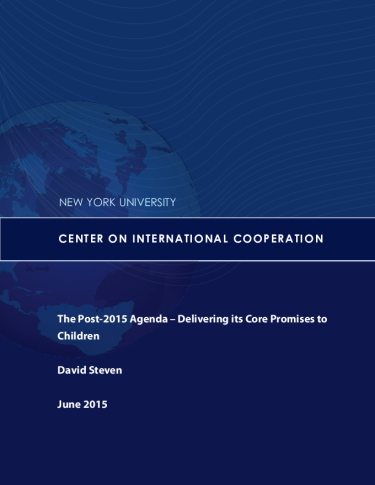The post-2015 agenda has a clear vision for children: the protection, survival and development of all children to their full potential. Four resonant and ambitious ‘core promises’ to children can be drawn from the child-focused goals and targets.
The core promises are:
- No child should die from a disease we can prevent.
- Every child should have the food needed to grow normally.
- Every child should be able to read and write, and should be numerate.
- No child should live in fear.
These core promises represent minimum levels of wellbeing that children must enjoy if, as adults, they are to contribute to a sustainable future. This new paper by CIC Senior Fellow David Steven sets out an agenda for those working to deliver the most urgent priorities to children – and is part of CIC’s ongoing research into the delivery challenges of the new development agenda.


